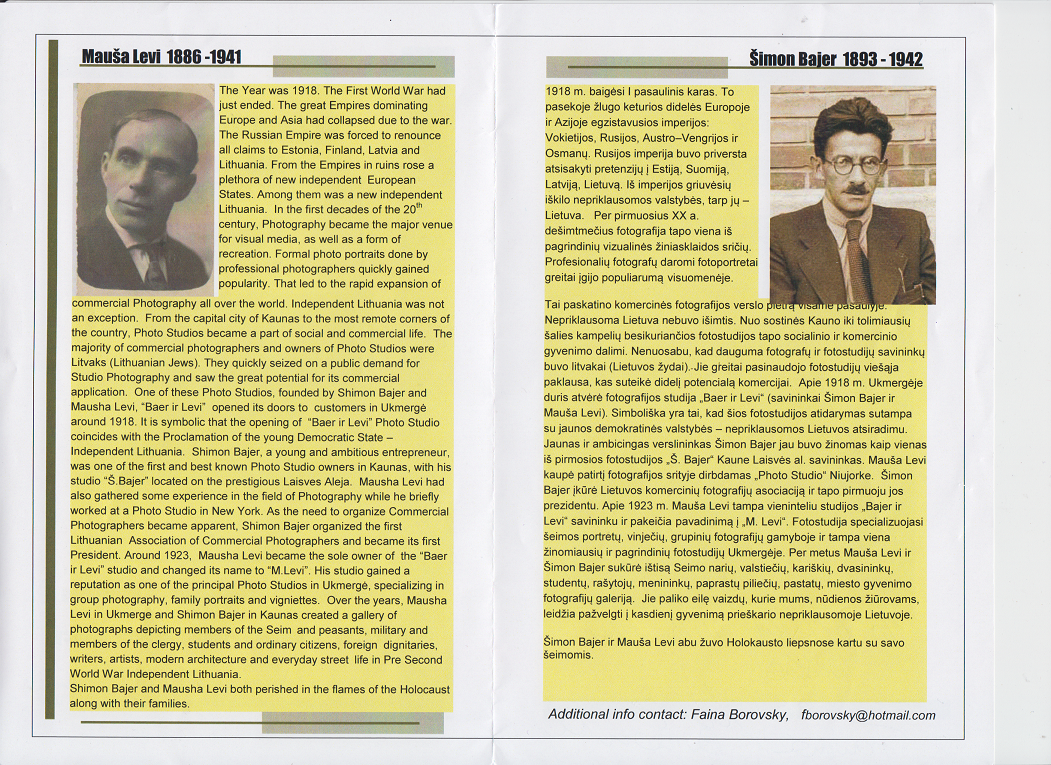The Kaunas Jewish Community invites you to come and honor the victims of the Lietūkis garage massacre at the monument commemorating these horrific events (Miško street no. 3, Kaunas) at 5:30 P.M. on June 25. Excursions to other Holocaust sites, the Slobodka ghetto, the old Jewish cemetery in the Žaliakalnis neighborhood and the Seventh Fort will follow the commemoration.
First Lithuanian Dramatic Film about Mass Murder of Jews in Production
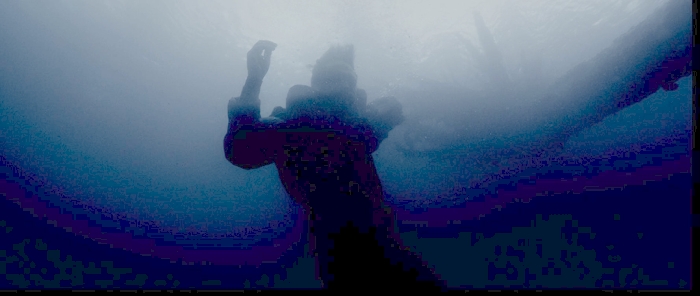
Lately it’s been fashionable to talk about Lithuania’s breakthrough and how we can achieve it. Stasys Baltakis, the producer of the film Izaokas–probably the first Lithuanian dramatic film to discuss the relationship between Lithuanian Holocaust perpetrators and Jews–says we will begin to move ahead as a country and nation only when we accept and solve internally the problems of our darkest history and identity.
Over the last several years there have been more open discussions of the Holocaust in Lithuania and collaboration by locals. About 90 percent of the Jews of our country were murdered. Stasys Baltakis, however, says there is a lack of constructive discussions and–most importantly–an open and sincere recognition of history.
Already in post-production, Jurgis Matulevičius’s first film with a running time of 90 minutes tells the story of main character Andrius Gluosnis who murders the Jew Izoakas [Isaac] in the Lietūkis garage massacre in Kaunas in 1941. The film is based on the short story of the same name by Antanas Škėma. It is scheduled to hit theaters on September 15.
Full story in Lithuanian here.
Conference to Preserve Jewish Heritage in Pušalotas, Lithuania
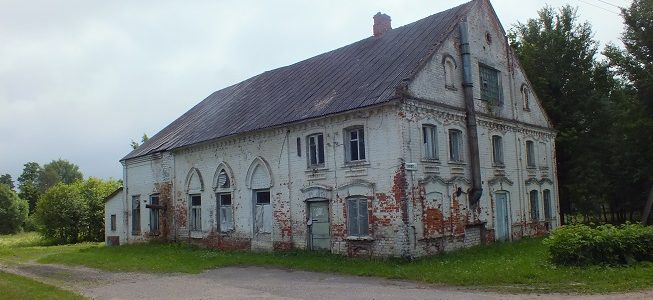
A conference and inspection tour took place in Pušalotas, Lithuania, June 15, of the synagogue there known as “Yoshke’s house” which also included a Jewish primary school. The synagogue was built by Howard Margol’s great-grandfather, all of whose relatives lived in Lithuania during Tsarist times. One of Margol’s relatives is former Israeli prime minister and long-time leader of the Labor Party Ehud Barak.
The inspection tour in Pušalotas included members of the Panevėžys Jewish Community, Israeli ambassador to Lithuania Amir Maimon, members of the Pušalotas community, officials from the Lithuanian Cultural Heritage Department and staff from the Lithuanian Jewish Community, Pasvalys regional administration chairman G. Gegužinskas, Lithuanian MP A. Matulas, Pušalotas township alderwoman P. Stravinskienė and Pušalotas community chairman A. Kumpauskas, among others. They inspected the synagogue which is in critical condition. For 75 years it hasn’t been used as a synagogue and was left derelict for some time. Margol and family had a commemorative plaque placed on the synagogue and put the old Pušalotas Jewish cemetery in order in 2005. The external structure of the synagogue is intact and authentic, and it could be restored and used by the local community.
YIVO Director Jonathan Brent Visits Vilnius
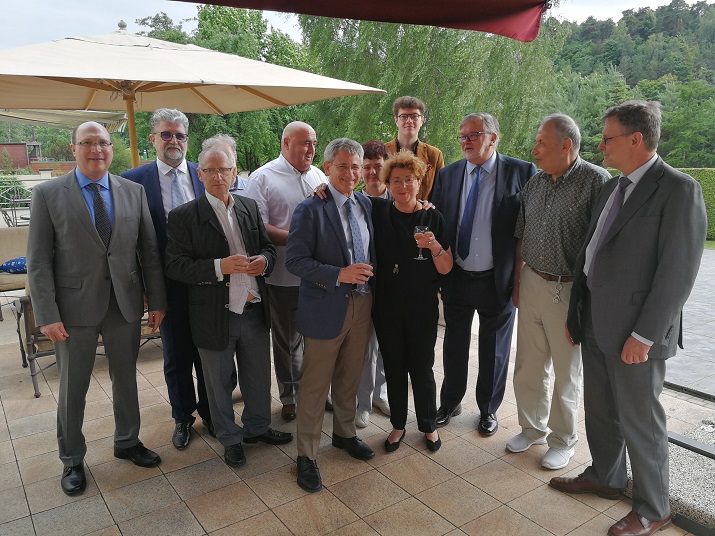
YIVO executive director and CEO Jonathan Brent led a delegation visiting Vilnius earlier this week. The Lithuanian Jewish Community cherishes our long-term cooperation and meaningful work with YIVO in preserving the Jewish cultural heritage in Lithuania and the world. We thank the United States embassy for their invitation to attend a reception for Jonathan Brent.
City of Kaunas Honors Righteous Gentile, Dutch Consul Jan Zwartendijk
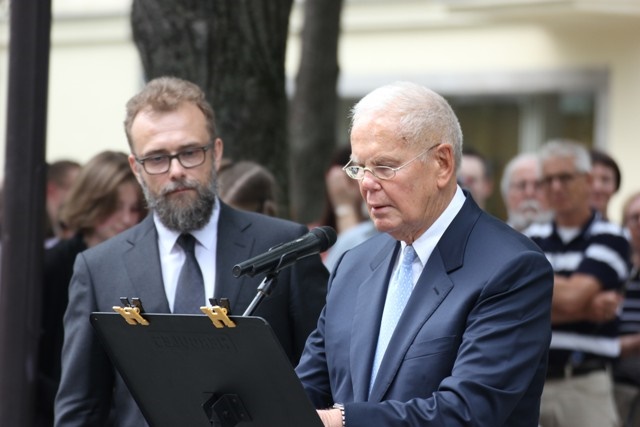
Jan Zwartendijk, the honorable consul of the Netherlands in Lithuania at the beginning of World War II and a rescuer of Jews, was honored Friday at Freedom Alley in Kaunas outside his former office where he also worked as a representative of the Philips company. The location was decorated with a lighting installation and a commemorative plaque was unveiled to honor Zwartendijk.
Dutch artist Giny Vos said she was trying to commemorate Zwartendijk the man, but also his humanitarian actions; Zwartendijk never considered himself a hero, although his so-called Curaçao end-visas he issued over 10 days in the summer of 1940 ended up saving around 2,400 lives directly in conjunction with transit visas issued by Japanese ambassador Chiune Sugihara, and countless more lives if succeeding generations are included. She said her light-show installation’s spiral symbolized life, movement, growth and hope, and that each individually sized and colored LED light in the installation represented a life saved, with the emphasis on hope, light and the future.
Lithuanian president Dalia Grybauskaitė, Kaunas mayor Visvaldas Matijošaitis and Jan Zwartendijk’s son Rob spoke about the man and his humanitarian actions at the event.
Solomonas Atamukas’s Book on Lithuanian Jews Launched at Lithuanian Jewish Community
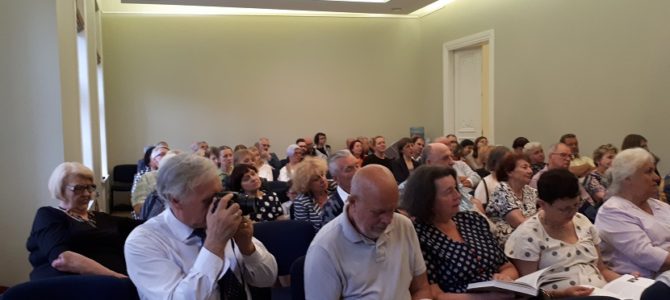
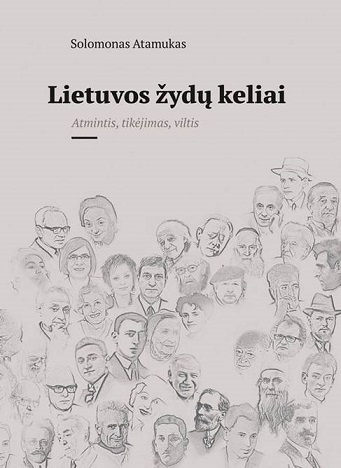
A new book by the late scholar and historian Dr. Solomonas Atamukas (1918-2014) was lauched June 11 in the Jascha Heifetz Hall at the Lithuanian Jewish Community in Vilnius. The book, “Lietuvos žydų keliai: atmintis, tikėjimas, viltis” [Paths of the Jews of Lithuania: Memory, Faith, Hope] was written and intended by the author to be a continuation of his first book. Late in life Dr. Atamukas suffered health problems and in order to insure the continuation of his first book would be published, enlisted the help of his son, daughter, grandson and daughter-in-law, who performed careful research and collection of information. According to his daughter, long-serving deputy chairwoman of the Lithuanian Jewish Community Maša Grodnikienė, the family paid for the publication of both books.
This is a useful new source for the reader interested in Litvak history. It contains 458 biographical sketches, called biograms in the book, of Litvaks, arranged by country of residence. The book contains large amounts of information about world-famous Litvaks, their origins in Lithuania, education, work and achievements. The author sought to collect as much information and write as many biograms as possible about Holocaust survivors.
Lithuania Marks Day of Mourning and Hope on June 14
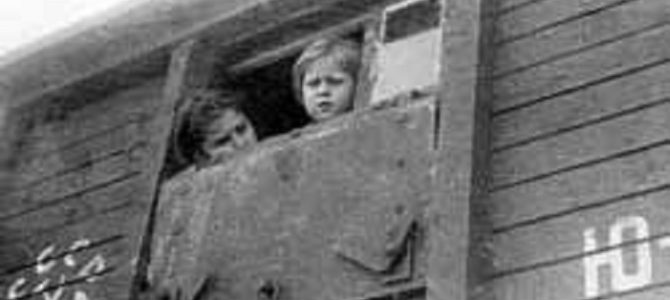
At 3 o’clock in the morning on June 14, 1941, NKVD officers began mass arrests of Lithuanian citizens. Entire families of Lithuanians and Jews were deported to Siberia deep in the Soviet Union. More than 30,000 people from Lithuania were taken away in one week. They were sent to Siberia in sealed rail cars.
Lithuania marks this anniversary as the Day of Mourning and Hope in honor of those who died in exile.
Kaunas Mayor Invites Public to Unveiling of Zwartendijk Monument
Kaunas mayor Visvaldas Matijošaitis has issued public invitations to attend a ceremony to unveil a monument to WWII-era Dutch diplomat Jan Zwartendijk across from the Knygų Ministerija bookshop at Laisvės Alley no. 29 in Kaunas at 3:30 P.M., Friday, June 15. Zwartendijk issued the so-called Curaçao final-destination visas to Jews fleeing the Holocaust in Lithuania.
Condolences
With great sadness we report the death of Anastazija Votrinienė who passed away June 4. She was born in 1936. Our deepest condolences go to her sister, Jelena Jakiševa.
Unexpected Guests Visit Panevėžys Jewish Community
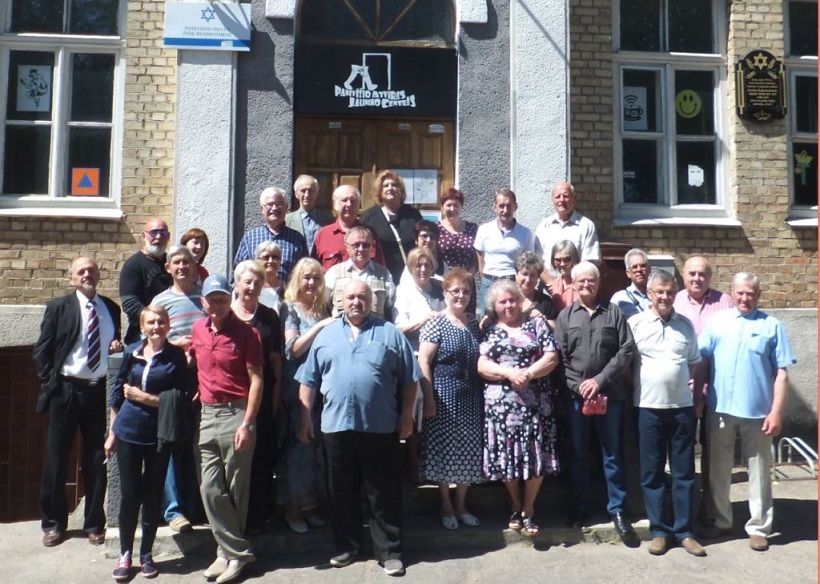
A group of former classmates now living in Israel, Russia and the United States have visited Panevėžys together. They attended a school which began operating in Panevėžys after liberation from the Nazis in September, 1944. Many of the students were Jewish. One such is David Dworkin, who now lives in Miami, Florida. His father was an airman and the commander of a military unit. Another is Semion Zuselevič Šteiman who lived on Ramygalos street with his parents. His children Genadij, Leonard and Jevgenij also attended the school. Vladimir Maksimičiov lived in Panevėžys and is a member of the Panevėžys Jewish Community. His brothers Genadij and Baruch also attended the same school after the war.
Panevėžys Jewish Community chairman Gennady Kofman told the guests the history of Jewish schools in Panevėžys, include the Yavne girls’ religious gymnasium which some of the visitors attended before the war, built in 1922 by Rabbi Josef Shlomo Kahaneman. It was closed down in June of 1940 along with all other Jewish schools, gymnasia and high schools in Lithuania. The chairman also told the guests about community activities and treated them to kosher wine and matzo.
The visit was useful to the Panevėžys Jewish Community as well as the visitors and the chairman said he’s grateful so many people have come and shared new photographs and documents with the community over the last 20 years.
Those wishing to visit during summer should contact beforehand the chairman of the Panevėžys Jewish Community, who might be able to help locate old homes, former teachers and places where parents and grandparents once worked.
Old Kalvarija Synagogue Springs Back to Life
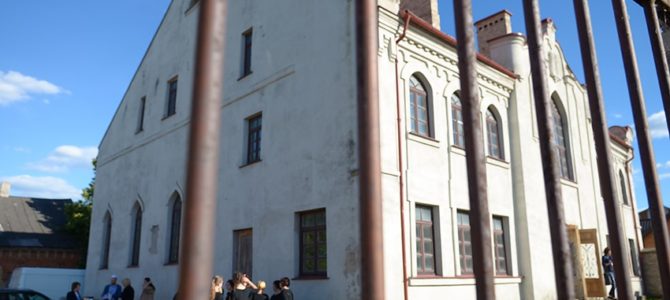
Leading Polish musical group Vocal Varshe performed a concert of Jewish song last week at the old synagogue complex in Kalvarija, Lithuania, where services were last held more than 77 years ago.
The Polish group sang and played accordion to a full house. The windows were opened and the music reverberated throughout the former shtetl where Jews were the majority population before the Holocaust. A local youth choir sang a Jewish song at the beginning of the concert to honor the victims.
Construction began on a synagogue in “Jewish Calvary” in 1713 when the ruler of the Polish-Lithuanian Commonwealth, Augustus II, granted the kahilla a charter to engage in different forms of trade and manufacturing, to set up cemeteries and to build synagogues not taller than the highest church.
The Kalvarija synagogue complex is listed on the Lithuanian registry of protected cultural treasures. It includes the Baroque synagogue built in the 18th century, the electric synagogue built in the latter half of the 19th century and the adjacent Talmud school and rabbi’s residence built at the turn of the 19th and 20th centuries.
Polish Group Vocal Varshe Performs at Sacred Site in Vilnius
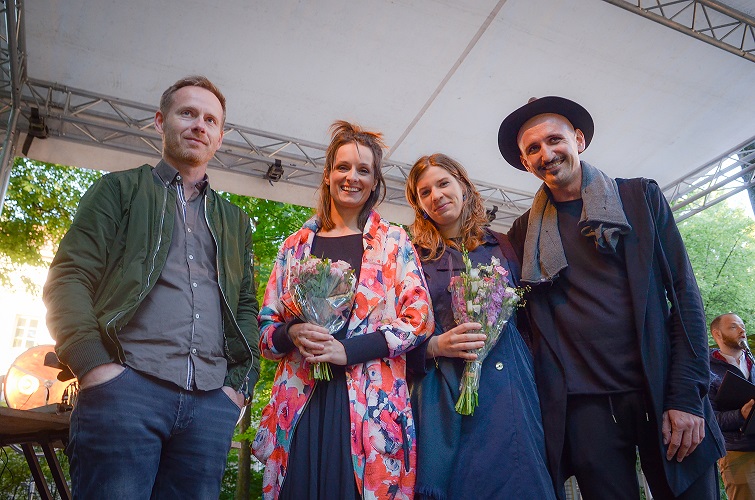
Vocal Varshe, a group of musicians from Poland, performed songs in Hebrew, Yiddish and Ladino at the site of the former Great Synagogue in Vilnius, destroyed after World War II, on the evening of June 6, 2018. The event was organized by the Polish Institute in Vilnius and the Lithuanian Jewish Community. The Polish musicians from Warsaw performed songs from the Warsaw and Vilnius ghettos.
LJC executive director Renaldas Vaisbrodas began the event with the poem Vilne by Moshe Kulbak.
Vilnius mayor Remigijus Šimašius greeted the audience and said the concert venue reminded the public, Polish and Lithuanian residents of Vilnius, that more could have been done to save Jews from the Holocaust. He also called for an appropriate commemoration at the site, whether that be partial reconstruction of the synagogue or some other form, to remind future generations of what happened. He said this would serve to unite the different ethnic communities in Vilnius.
LJC chairwoman Faina Kukliansky thanked the musicians for coming and performing and the Vilnius mayor who granted permission for the concert at the site infused with the spirit of the teachings of the Vilna Gaon.
International Forum of Jewish Scouts Director Alain Silberstein Visits Kaunas
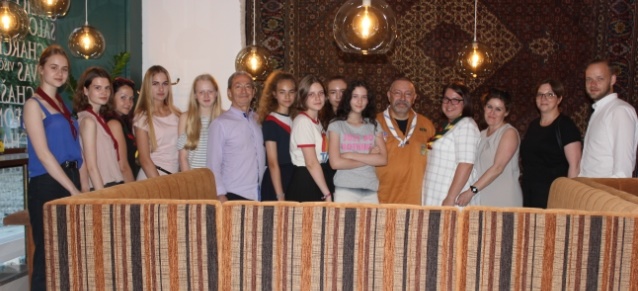
International Forum of Jewish Scouts director Alain Silberstein during his visit to Lithuania last week visited Kaunas where he met with the chairman of the Kaunas Jewish Community, scouts and young people. The French visitor gave an enthusiastic presentation of the Tsofim Yehudim program, plans to expand Jewish scouting activities in Europe and plans to revive Jewish scouting in Lithuania. He reminded his audiences this movement was very active in Lithuania before the Holocaust. Girls who attended the meeting at the KJC said they found his presentation very interesting and inspiring. Scouting, as presented, allows everyone to find themselves and to get involved in activities they love most, and also provides the opportunity to expand one’s horizons to activities which might not have appeared interesting at first. The Jewish scouting movement is attractive because of the values it espouses, its orientation towards Jewish culture and traditions and its tolerance. The ideas interested the audiences in Kaunas and there are great hopes the Jewish scouting movement will return to Lithuania.
Vocal Varshe Concert at the Winter Synagogue in Kalvarija
The Vocal Varshe group from Poland will perform a concert of Jewish songs in Yiddish and Hebrew including songs from the Warsaw and Vilnius ghettos at the synagogue located at Sodų street no. 18 in Kalvarija, Lithuania, at 7:00 P.M. on June 7. Entry is free. Limited transportation from Vilnius will be provided with a small bus leaving the Lithuanian Jewish Community at 4:00 P.M. on June 7 and returning sometime between 10:00 P.M. and 11:30 P.M. Please contact neringa@lzb.lt if you want to make use of this limited transportation.
Interview with Mizrachi Feminist and Litvak Dr. Smadar Lavie
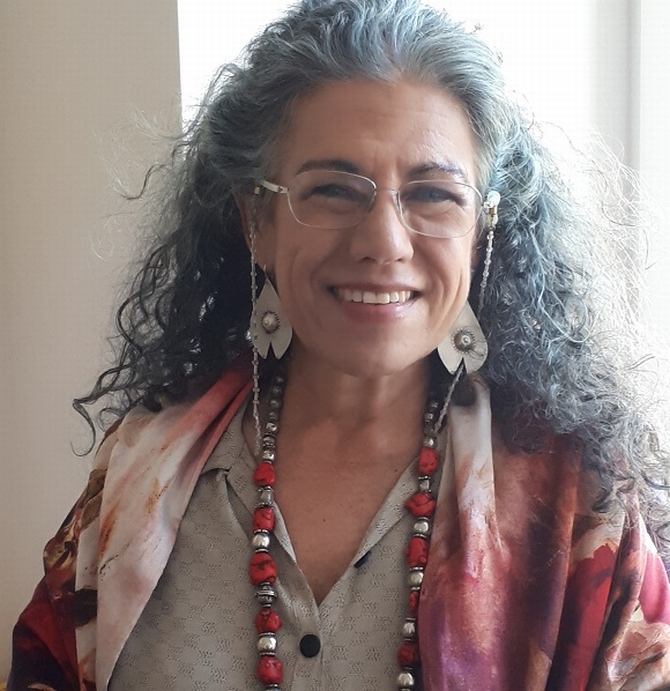
Visiting lecturer Dr. Smadar Lavie recently returned to Vilnius and agreed to a short interview for www.lzb.lt.
I came here for my father’s posthumous degree. They had a big ceremony. I said I didn’t grow up as a Litvak, I grew up as a shvartze, because my mother is Yemeni, and Israel has lots of racism by the Ashkenazi Jews towards the Mizrachi Jews. So now that you’re talking to me, almost all of my classmates were Ashkenazi, children of survivors, and they didn’t have grandparents. They were very envious that I had a Yemeni grandmother. My grandmother was very nice to my friends because they didn’t have grandparents. I didn’t know why. It was just … over there. We use to call it “over there.”
So where did you study then?
I grew up in Holon, it’s a suburb of Tel Aviv, and I went to Bialik elementary school. I did my BA at Hebrew University in Jerusalem and my PhD is from University of California, Berkeley.
Pianist Golda Vainberg-Tatz to Perform in Vilnius
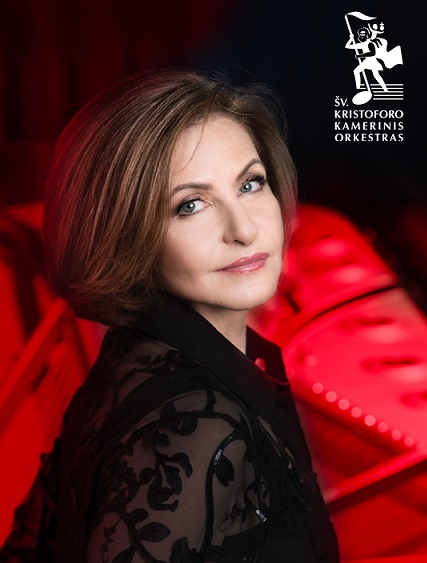
St. Catherine’s Church at Vilniaus street no. 30 in Vilnius will host a concert by pianist Golda Vainberg-Tatz from the USA/Israel at 7:00 P.M. on Thursday, June 7.
Vilnius Municipal ST. CHRISTOPHER CHAMBER ORCHESTRA
Artistic Director: MODESTAS BARKAUSKAS
Conductor: DONATAS KATKUS
Program:
Exhibition of Photography by Famous Jewish Photographers Opens in Ukmergė
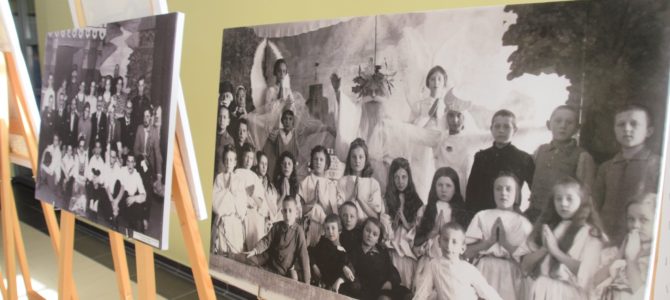
The Ukmergė Regional History Museum has opened an exhibition of photography by Maushe Levi and Shimon Bayer called “The Fate of Interwar Lithuania’s Photographers.” More information is available here.
More about the photographers Maushe Levi and Shimon Bayer:
Lithuanian Public Television Series Righteous Gentiles, Episode 11: The Kukliansky Story
The Righteous Gentiles series on Lithuanian Public Television and Radio presents the story of the Kukliansky family in episode 11. Broadcast in Lithuanian.
Plans to Memorialize Kaunas Ghetto
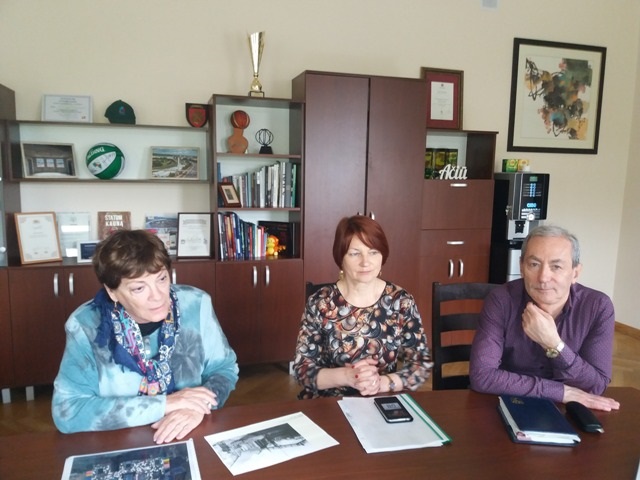
Plans are afoot in Kaunas to get the former Slobodka ghetto into better shape by marking its most significant sites, providing information about the aktionen or mass murder operations carried out there, commemorating ghetto government institutions and appropriately commemorating the Holocaust and its victims. Currently a lone obelisk stands in the former ghetto marking the site of the main gates, and most people have no idea even where Democracy Square was, the place where the selection for the Great Aktion took place.
Remarkably, the forces behind the proposed refurbishing and educational outreach are just two individuals from different countries who presented their ideas at the same time.
One is Yaarit Glezer, a frequent visitor to Lithuania who lives in Israel now. When she entered retirement she decided she had to do something more to commemorate the Holocaust in Lithuania, which took the lives of her family. Incidentally, Yaarit’s father was one of only a few who managed to escape from the Ninth Fort, where the majority of Jews were murdered in Kaunas.
Jewish Volunteer Soldiers Remembered in Kaunas

Lithuanian military commander lieutenant general Jonas Vytautas Žukas and the Kaunas Jewish Community invited the public to a commemoration on May 30 of Jewish volunteers who fought in early 20th-century battles for Lithuanian independence. Those attending included lieutenant general Žukas, Lithuanian Jewish Community chairwoman Faina Kukliansky, representatives of regional Jewish communities, Israeli ambassador to Lithuania Amir Maimon, commanders of Kaunas divisions, soldiers and representatives of the Kaunas municipality and other organizations.
May 30 is an important date, marking one of the first planned military operations by the Lithuanian military. At the end of May and in early June of 1919 Lithuanian soldiers, including many Jews, aided by volunteer soldiers from Saxony, liberate Utena from the Bolsheviks and seized the initiative in battle against the Red Army.
Lithuanian Jewish Community chairwoman Faina Kukliansky and Kaunas Jewish Community chairman Gercas Žakas took part in the commemoration.


